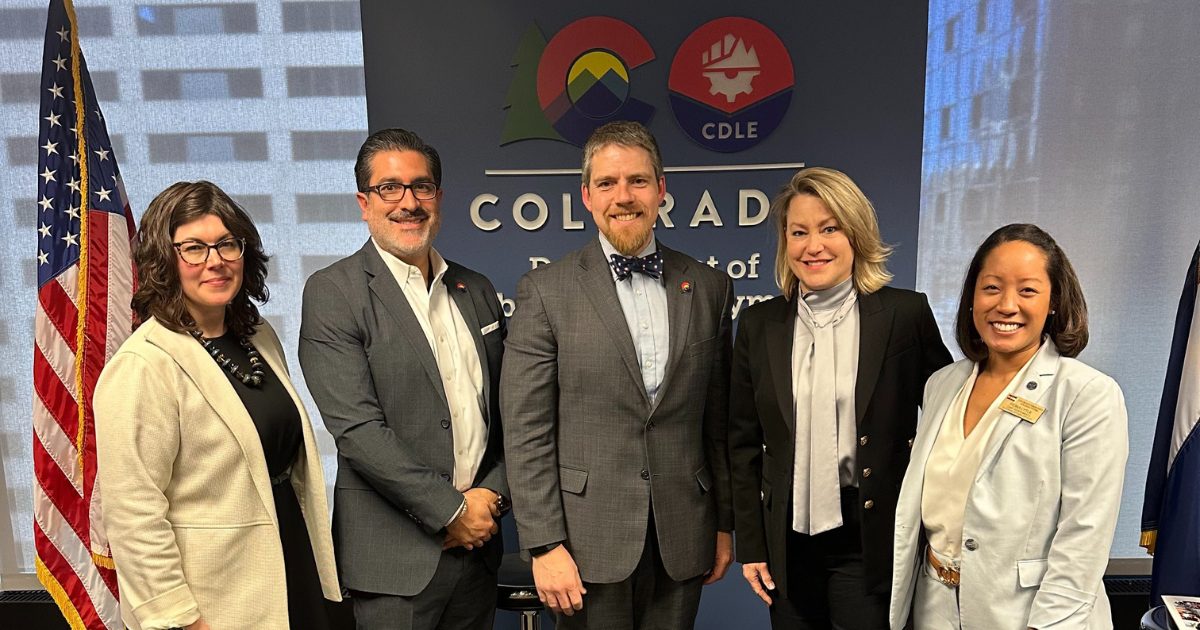
A new report from RAND shows promising results for Colorado community college students enrolled in short-term training programs.
The report focused on the impact of Senate Bill 22-192, which awarded the Colorado Community College System (CCCS) $1.4 million to assist learners enrolled in short-term, high-demand training programs at six colleges. RAND found that most award recipients completed a certificate or continued their training by the spring of 2024.
For Michael Macklin, CCCS’s Associate Vice Chancellor for Academic Affairs and Workforce Development, the findings underscore the benefits of “stackable” pathways that allow learners to build on knowledge and skills.
“This report confirms what we already know—that short-term credentials are effective ‘on-ramps’ to sought-after careers and further education,” he said. “We look forward to expanding these pathways in partnership with government and industry leaders.”
Becoming ‘Job Ready’
The efforts are part of a national movement to expand industry credentials. In recent years, 28 states including Colorado have invested nearly $4 billion to scale or support learners in short-term training programs, the report noted.
The Colorado General Assembly took a unique approach by funneling aid to a prioritized group: those adversely affected by the COVID-19 pandemic who pursued an in-demand credential. Among other higher education institutions, CCCS colleges collectively supported 844 learners in many fields, including healthcare, construction, and software development.
“In addition to serving individuals with economic loss, we found that Hispanic or Latino students were represented at higher rates among recipients relative to the overall college population,” the authors wrote. These findings “may reflect differences in the population of students enrolling in short-term programs as well as targeting of financial support resources to communities of color.”
As the report detailed, colleges used dollars strategically to advance programmatic goals. Red Rocks Community College enrolled more justice-involved students through its innovative College Gateway program, while Front Range Community College launched a software development bootcamp partnering with industry leaders.
“Staff at most colleges emphasized that flexibility with how students could use SB 22-192 funding helped students complete their programs or become job ready,” the report said. “Use of funding to cover unpaid balances prevented stop-outs and helped students continue in their pathways without interruption.”

This report confirms what we already know—that short-term credentials are effective ‘on-ramps’ to sought-after careers and further education. We look forward to expanding these pathways in partnership with government and industry leaders.
Assessing ‘Noncredit’ Programs
The report also highlighted the success of noncredit programs—workforce training that may lead to industry certifications and can stack into an academic degree or certificate.
More than 275 students opted for noncredit programs in the trades and business, among other fields. By the spring of 2024, 82% had successfully completed their training.
The report authors posit that the shorter length of noncredit programs may have driven higher completion rates compared to traditional pathways. College leaders who were interviewed for the report noted that these programs could be especially helpful for adult learners over the age of 25, who often balance education with other obligations.
“Staff said that the funding was especially important for students in noncredit training since fewer resources are generally available for noncredit programs than credit-bearing programs,” the authors wrote.
Leading for the Future
As the state looks to community colleges to fill workforce gaps, short-term credential pathways should certainly be part of the solution, the report authors concluded.
Beyond finding sustainable funding, state leaders should explore ways to provide wraparound services—such as transportation and internet access—to ensure more learners finish their training. They also encouraged agencies to collect more data to monitor learners’ earnings and employment outcomes.
With more noncredit programs and stackable pathways in development, the report validates CCCS’s strategic direction, Macklin said.
“The RAND analysis shows that short-term training is the future of higher education,” he said. “We’re excited to be frontrunners of this work in Colorado and in the nation.”


